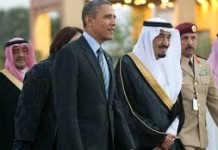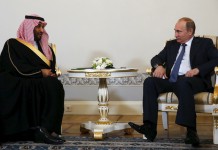Context
 The Iranian execution of Abdul Malik Regi on June 21 may have eliminated one of the most dangerous militant-terrorists of modern Iranian history. In this analysis PoliTact examines the consequences of the hanging of Regi. He was arrested on a plane from Dubai to Bishkek, which was forced to land in Bandar Abbas. Most importantly, the analysis also examines if Jundallah is a nationalist or a separatist movement in character.
The Iranian execution of Abdul Malik Regi on June 21 may have eliminated one of the most dangerous militant-terrorists of modern Iranian history. In this analysis PoliTact examines the consequences of the hanging of Regi. He was arrested on a plane from Dubai to Bishkek, which was forced to land in Bandar Abbas. Most importantly, the analysis also examines if Jundallah is a nationalist or a separatist movement in character.
Analysis
Regi was the head of Jundallah or Soldiers of God militant-terrorist organization, and its members mostly belong to Baloch tribes on the Iranian side. A couple of years ago Jundallah renamed itself as the Popular Iranian Resistance Movement but the previous name is still commonly used. Rigi and other members of Jundallah have operated from the Balochistan province in Pakistan, just across the border from Iran. The group has been active since 2003 and has staged a number of terrorist attacks including suicide assaults inside Iran. However, there are some misperceptions about Jundallah which need to be analyzed in order to develop a realistic assessment of the impications of Regi’s death.
Jundallah has been fighting aggressively for the rights of Iranian Baloch who it thinks have been kept marginalized and constantly persecuted by Tehran. According to Regi, the reason for the denial of the rights and maltreatment of Iranian Balochs is not only their ethnic origin but more importantly their Sunni sect. Iran is a majority Shiite state and the clerical regimes ruling the country since the 1979 so-called Islamic revolution have been subscribing to strict Shiite doctrines. Nonetheless, it should be pointed out that the persecution of Sunnis in Iran, particularly Balochs, is not a post 1979 phenomenon. They were denied rights and faced persecution even during the much-celebrated periods of Iranian Shahs.
In this backdrop Jundallah perceivably is a Baloch nationalist organization. However, according to Regi himself his outfit does not desire separation of Sistan-Balochistan (the Sunni-dominated home province of Regi) from Iran. Based on his various interviews to the media, Jundallah does not have any links with Pakistani Baloch militant separatist organizations like Baloch Liberation Army, Baloch Liberation Front, Baloch People’s Liberation Front and Balochistan Republican Army. The difference seems to be that the Jundallah does not subscribe to ethnic ideology per se. This is enough to unmask the perceived Baloch nationalist character of Jundallah.
According to the self-declared agenda of Jundallah, it does not aim at killing Shiites. Regi has been demanding that Iranian Balochs, mostly Sunnis, should be given equal rights like Shiites. For instance, he had been demanding appointment of Iranian Balochs to key government positions and the shunning of deliberate policy by the Iranian state of keeping them politically and educationally backward. Based on the treatment they have received in Iran, a Sunni nationalist group logically ought to be a separatist organization in character. This is particularly interesting when on the Pakistani side of the border the Balochs have been waging a nationalist-separatist struggle against Islamabad. Thus it is quite evident that Jundallah does not have anything in common with Pakistani Baloch nationalists. Pakistani Baloch nationalists also do not view Jundallah as a nationalist outfit.
Iran has considered Jundallah a group connected to Taliban and their opium revenues, getting financial as well as ideological support directly from Saudi Arabia in collusion with Pakistani intelligence agency ISI and other hard-line anti-Shiite, Sunni groups within Pakistan like the banned Sipah-e-Saphaba Pakistan. However, there exists a discrepancy in Iran’s accusations against Jundallah, on the one hand charging the Americans for supporting Jundallah, and on the other naming Taliban and Al Qaeda as being behind the militant outfit.
Regi believed his movement was not purely religious and that his organization often states that it does not have any link with Al Qaeda, Taliban, Jaish-e-Muhammad or Sipah-e-Sihaba. He also contended that the Taliban did not support Jundallah or vice versa. However, Regi studied at Pakistani madrassahs particularly in Karachi while Afghan Taliban leadership also mainly emerged from Jamia Banoria of Karachi.
The presence of Regi at Pakistani madrassas and the operating of Jundallah’s members out of Pakistani territory established the links of Jundallah to Pakistan. Pakistani Baloch leaders have often stated that like Taliban and other religious outfits, which Pakistan considered as their strategic assets, Jundallah may also be used as an asset in the troubled Balochistan province. These Baloch leaders are of the view that Pakistani intelligence agencies have repeatedly failed to create religious outfits within the ranks of the secular Balochs, as they had done successfully within Pushtuns. Jundallah does not demand a separate Baloch state, which is in complete harmony with Pakistani strategy to defeat Baloch separatist and the national rights movement in its problematic region.
According to Regi, Jundallah was not supported by America as Iran charged. However, Regi has admitted that he had been meeting ambassadors of foreign countries and has explained his standpoint to them. When Iran and Iraq were engaged in a war (1980-88) Iraq had used hundreds of Iranian Baloch against their native country. During this era the relationship between the Iranian government and Baloch population became strained. Since then Iran has seen its Baloch population as a serious threat to the state. In this backdrop some regional experts contend that Regi might have the support of the Americans to be used in a stand off between the US and Iran.
Irrespective of Iranian accusations, independent evidence over the years also reveals that Jundallah is more a religious than a nationalist organization. The very term ‘Jundallah’ corroborates this fact. Evidence also suggest Jundallah has had links with Al Qaeda and Pakistani Taliban as well as anti-Shiite Pakistani outfits like SSP and Lashkar-e-Jhanghvi (LJ).
It is important to note that Jundallah has been operating in Pakistan also and has been involved in terrorist and sectarian attacks. For example, the group was involved in the 2004 attack in Karachi, on the then Vice Chief of Army Staff Lt. General Ahsan Saleem Hayat. The group was also traced to the last year deadly attack on Shiite mourners on the Ashura day, which had claimed the lives of almost 76 people. Just two days before Regi’s hanging in June, in a daring attack in Karachi Jundallah militants were successful in freeing three of their accomplices from police custody.
Given the role of SSP and LJ in the ongoing-targeted sectarian killings in Karachi, it is possible that Jundallah is operating in league with the SSP. As the brazen attack in Karachi to free Jundallah militants suggests, the group might have planned to avenge Regi’s hanging by killing Shiites in Pakistan. Jundallah might have devised this plan to make up for its failures in Iran where the heavy-handed state crushed the organization and its terrorist activities. In this backdrop the killings of Shiite by Jundallah in Pakistan is akin to a vicarious revenge.
Tell Us What You Think
Feedback@politact.com



